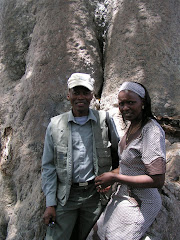In the recent years there has been a growing concern with the psychological effects of war on both adults and children in some of the African war torn countries such Darfur in Sudan and the Democratic Republic of Congo.
Children who witness killings, especially involving people close to them such as their parents or siblings, who see houses being destroyed, who experience the fear of attack, who become orphaned or separated from their families and loved ones, or who have to cope with the upheaval of seeking refuge away from their communities are likely to be affected in various ways.
Such experiences have a profound effect on the ways in which children perceive themselves and the world around them. This also affects how they feel, how they behave and how they relate to other people in society. This is known as the post traumatic stress disorders (PSTD).
Some researchers have done work with children attending pre-schools and observed a number of particularly striking factors:
- a preoccupation, sometimes almost an obsession, with war
- a dramatic effect on the colours used by children in their drawings, with flowers and suns coloured black .
- in their play, children displayed their reactions to war but their playing tended to be rigid and lacked the vital ingredient of normal play: the elaboration of their experience and not merely reactions to it
- increased aggression in play
- children perceived the end of the war in terms such as 'extermination' rather than reconciliation, peacemaking or conflict-resolution, suggesting that adults have not given children different ways of thinking about the war and the possible ways in which the conflict might be resolved.
In some cases many children are simply unable to play, having experienced violence, sudden disruptions and separation. It has been found that many parents normally display a reduced level of parental competence as a result of their experiences. Adults become alienated and experience difficulties in making social contacts with others. It is apparent that many of them experience loss of individuality, personal identity and 'personal space'.
The effects of war on children and their caregivers
The main effects of war on people are not so much the classical symptoms of post-traumatic stress disorder but the indirect effects. These include excessive use of drugs and alcohol, increasing marital violence and child abuse, authoritarian, militaristic attitudes, and a widespread feeling of despair and hopelessness.
Another effect of war is that people become so preoccupied with their involvement with the conflict that there is little time for other things. Children may have little time for play and parents may have little time for their children.
Interventions to assist victims
The most critical intervention strategy involves focusing more directly on children and youth. This is so because young people are not only less affected than adults by the sense of hopelessness and despair but also tend to be less polarised in their views. For these reasons, children and young people can often be more readily mobilised to take action to transform their communities and to work towards reconciliation.
Subscribe to:
Post Comments (Atom)











No comments:
Post a Comment